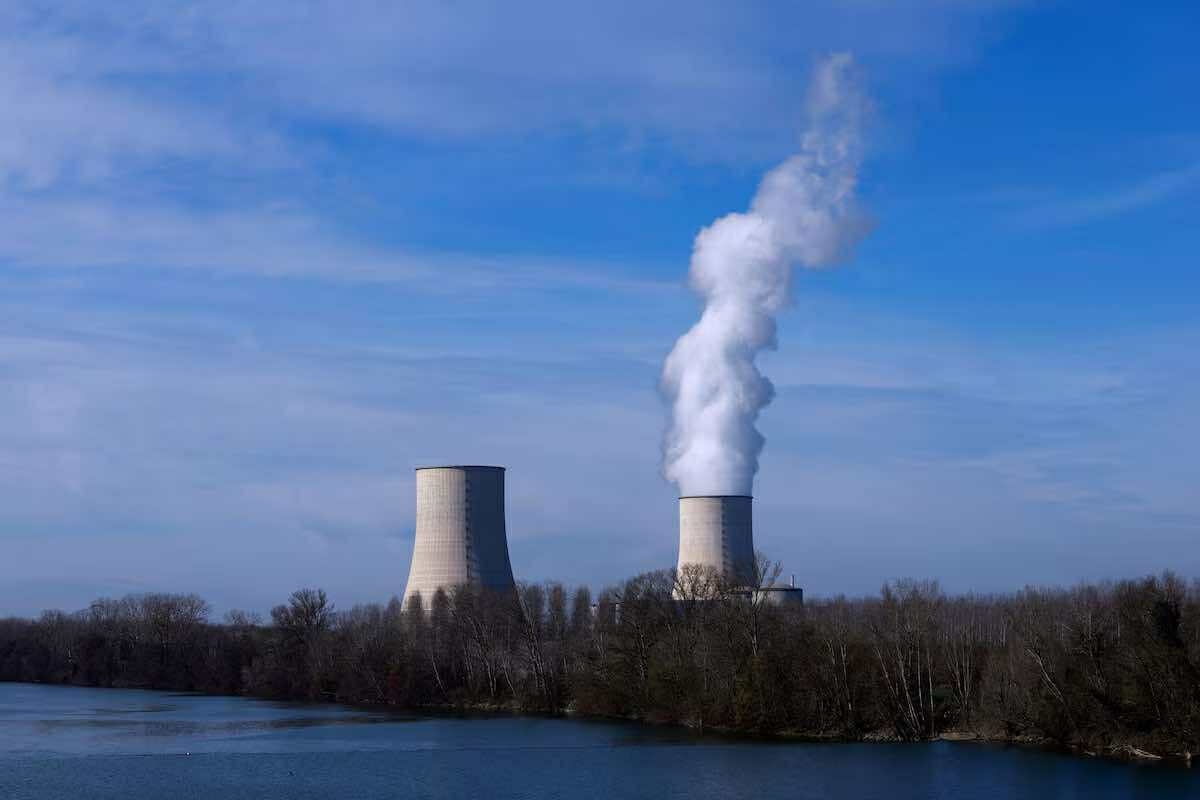An intense heatwave is sweeping across Europe, with temperatures exceeding 46 degrees Celsius and raising river temperatures. In response, some nuclear power plants in Switzerland and France have reduced operations or shut down, fearing the impact on local ecosystems.
To cool reactors, nuclear power plants draw water from rivers or seas and discharge it back at higher temperatures. This process can threaten biodiversity if the discharged water becomes too warm.
In France, electricity company EDF temporarily shut down the Golfech nuclear power plant early last week due to extreme heat warnings in the region. The company was required to adjust output when the average daily temperature of the Garonne River downstream of the plant exceeded 28 degrees Celsius.
Power output was also reduced at the Blayais plant in western France and the Bugey plant in the south. These two plants draw cooling water from the Gironde and Rhone rivers, respectively, and could also be shut down if the heatwave continues.
 |
Cooling towers of the Electricite de France (EDF) Golfech nuclear power plant on the banks of the Garonne River, France, 16/2. Photo: Reuters |
Cooling towers of the Electricite de France (EDF) Golfech nuclear power plant on the banks of the Garonne River, France, 16/2. Photo: Reuters
65% of France's electricity comes from nuclear power. The country has 18 nuclear power plants with 57 reactors. The reduction in nuclear power production in recent days has not significantly affected the national power grid. Speaking to FranceInfo, grid operator RTE said they are ensuring sufficient electricity for public needs, as they are producing more than they consume and are exporting to neighboring countries.
In Switzerland, Axpo, the operator of the Beznau nuclear power plant, said it shut down one of its reactors on 1/7. They added that the second reactor is operating at reduced capacity due to the rising temperature of the Aare River.
Beznau is one of three nuclear power plants in Switzerland. The country plans to phase out nuclear power by 2033. However, existing plants can continue operating if safety is ensured.
As global temperatures continue to rise, experts predict that energy consumption will regularly peak during heatwaves.
Europe is experiencing a widespread and severe heatwave. In Portugal, two-thirds of the country is under alert due to extreme temperatures and the risk of wildfires. Italy, Greece, Switzerland, and Germany are urging people to take precautions against heat-related illnesses.
France has reported two deaths from heatstroke. The country has issued a red alert for heat—the highest level—in 16 provinces, including the capital, Paris. Temperatures in Paris rose so high that the Eiffel Tower temporarily stopped admitting visitors to its summit on 1/7 and 2/7, urging tourists to limit outdoor activities, wear protective clothing, and stay hydrated.
Bao Bao (Euronews, Reuters)












